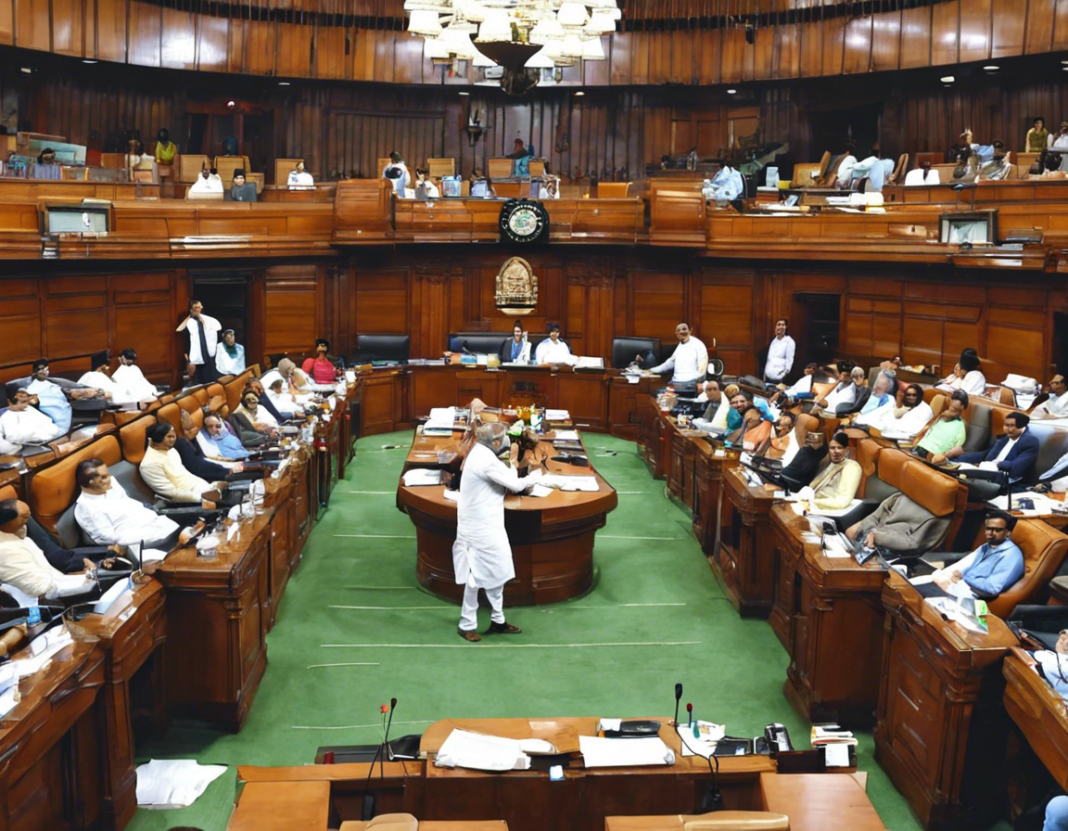The recent presentation of the Delhi Services Bill in the Lok Sabha has sparked significant interest and debate. The bill aims to redefine the distribution of powers and responsibilities between the Delhi government and the Lieutenant Governor, particularly in the realm of services. This move comes after years of contention and legal battles over the administrative control of the national capital.
Understanding the Delhi Services Bill
The proposed Delhi Services Bill seeks to establish clarity and address the overlapping jurisdictions that have been a point of conflict between the Delhi government and the Lieutenant Governor. Here are some key aspects of the bill:
1. Defining Powers:
- One of the primary objectives of the bill is to clearly define the powers and functions that fall under the domain of the Delhi government and those that are under the control of the Lieutenant Governor.
2. Service Matters:
- The bill specifically addresses service matters, including the posting and transfer of officials in key administrative positions. It aims to delineate the roles of the elected government and the Lieutenant Governor in these decisions.
3. Dispute Resolution Mechanism:
- The bill also proposes the establishment of a mechanism for resolving disputes between the Lieutenant Governor and the Delhi government regarding matters related to services. This is aimed at preventing prolonged conflicts and ensuring smooth governance.
4. Impact on Governance:
- If passed, the Delhi Services Bill is expected to have a significant impact on the administrative functioning of the national capital. It could lead to greater autonomy for the Delhi government in certain areas while maintaining coordination with the central government.
Controversies and Debates
The presentation of the Delhi Services Bill has reignited debates and controversies surrounding the power dynamics in Delhi’s governance structure. Key points of contention include:
1. Constitutional Validity:
- Critics of the bill argue that it may infringe upon the constitutional division of powers between the state government and the Lieutenant Governor. The issue of the special status of Delhi as a Union Territory adds complexity to this debate.
2. Political Motivations:
- Some view the bill as a politically motivated move, driven by the ongoing tensions between the ruling party in Delhi and the central government. The implications of this legislation on the broader relationship between the Center and the state are being closely scrutinized.
3. Legal Implications:
- Legal experts are examining the potential implications of the Delhi Services Bill on existing laws and judgments, including the landmark Supreme Court ruling on the powers of the Delhi government and the Lieutenant Governor in 2018.
FAQs on the Delhi Services Bill
Q1: What is the main objective of the Delhi Services Bill?
A: The Delhi Services Bill aims to clarify the distribution of powers and responsibilities related to services between the Delhi government and the Lieutenant Governor.
Q2: How will the bill impact governance in Delhi?
A: If passed, the bill could lead to greater autonomy for the Delhi government in service-related matters while maintaining coordination with the central government.
Q3: Are there concerns about the constitutional validity of the bill?
A: Yes, critics have raised concerns about the potential infringement on the constitutional division of powers between the state government and the Lieutenant Governor.
Q4: What are the key areas of dispute between the Delhi government and the Lieutenant Governor?
A: Service matters, including the posting and transfer of officials, have been a point of contention between the two authorities.
Q5: How does the bill propose to address disputes between the Delhi government and the Lieutenant Governor?
A: The bill proposes the establishment of a mechanism for resolving disputes related to service matters to ensure smoother governance.
Conclusion
The Delhi Services Bill represents a significant development in the ongoing efforts to clarify the administrative framework in the national capital. While it holds the promise of streamlining governance processes, it also raises important questions about constitutional principles and political motivations. As the bill progresses through the legislative process, its implications for the power dynamics in Delhi will continue to be a subject of intense scrutiny and debate.
